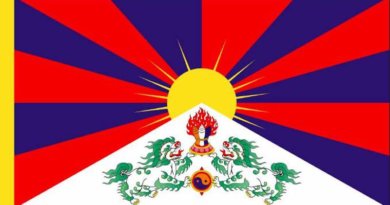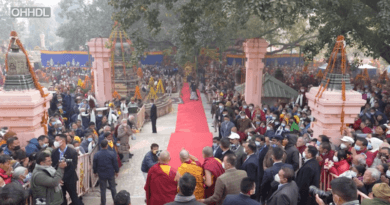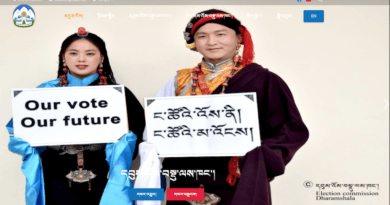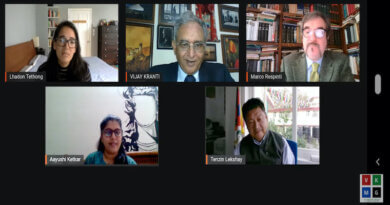Centre for Middle Way Initiative Commemorates 28th Anniversary of Tibet Policy Shift
By Tenzin Chokyi
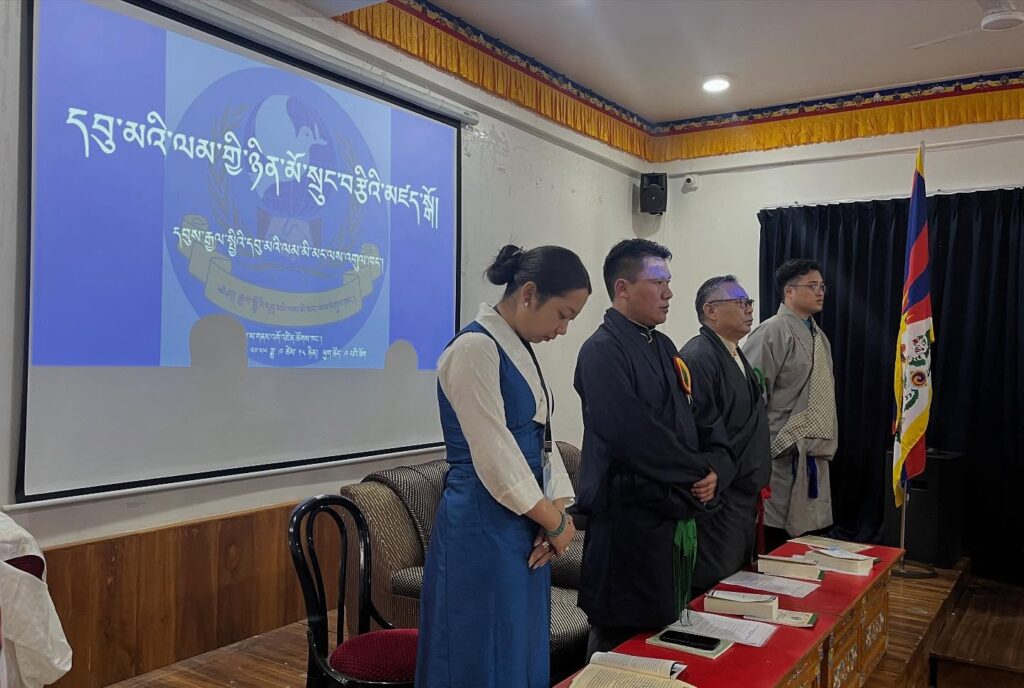
DHARAMSALA 19 September: The Centre for Middle Way Initiative commemorated the official adoption of the Middle way policy by the Tibetan parliament in exile on 18 September 1997 in pursuit of a negotiated solution to the Tibetan issue with China, marking the transition of its policy from seeking independence for Tibet to seeking genuine autonomy as enshrined in the Chinese constitution, on Thursday.
The commemoration was attended by Kunchok Migmar, Dharamsala Tibetan Settlement Officer as chief guest and Passang Tsering, Principal of the College for Higher Tibetan Studies (CHTS), Sarah, as the special guest, along with heads of various Tibetan NGOs.
Tenzin Shinyi, the Vice President of the organisation, stated that the Centre for Middle Way Initiative celebrates this significant day every year and added that the Tibetan freedom movement, is a very vast movement therefore “we have been doing what we can from our part.”
Given the deteriorating situation inside occupied Tibet and attempts to erase the Tibetan language by the Chinese government, Shinyi stated that the group has, since last year, organised prize money for students who have achieved top scores in Tibetan language in class X and XII in this year’s CBSE board exams.
A total of one lakh rupees in prize money and certificates were awarded to 17 students for their excellence.
The Middle Way Policy, first articulated by the Dalai Lama in the 1980s and formally adopted by the Tibetan Parliament-in-Exile in 1997, advocates for a negotiated solution with China by setting aside two extremes: complete independence on one hand and the present situation of Tibet as an occupied country by China on the other.
The Middle Way Approach does not seek independence, but genuine autonomy within the framework of the People’s Republic of China to ensure the survival of the Tibetan people with their distinct Buddhist cultural heritage and language and the natural environment of the Tibetan plateau.
Over the years, however, the policy has remained a subject of debate within the Tibetan community, with its viability and effectiveness frequently questioned owing to China’s attitude and the dialogues being stalled since 2010.
The ninth and the final round of talks was held in 2010 and in 2012, the envoys of His Holiness the Dalai Lama resigned from their positions citing the overall deteriorating situation inside Tibet and the “lack of willingness and sincerity” from the Chinese side.
During the ongoing parliamentary session on the 17th September, a parliamentarian raised a question to Norzin Dolma, Minister of the Department of Information and International Relations (DIIR) of the Central Tibetan Administration(CTA) where the MP said the Vice President of the Centre for Middle Way Initiative had misinterpreted the definition of the Middle Way Approach while speaking in Chinese and describing the Middle Way Approach in Taiwan which the MP said, has prompted a scholar to write to the private office of the Dalai Lama as well as the CTA’s Cabinet.
Shinyi, when asked about it, said that she has not yet watched the parliamentary session but reiterated that on every platform, the Centre always aligns with the documents of the CTA when defining the Middle Way Approach.


